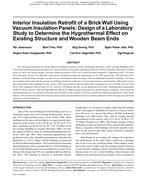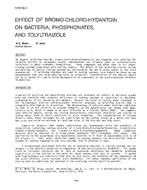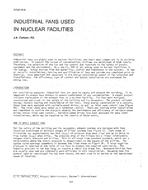Many buildings, both new and old, suffer from moisture-related problems with negative consequences on health, costs for rebuilding, and lost confidence in the building trade. These problems could be avoided if moisture issues are focused on and dealt with throughout the building process. Therefore, a method for including moisture safety in the building process has been developed. The purpose of the method is to help all parties concerned work with moisture safety activities and document these in a structured way. The method includes a number of routines, templates, and checklists for clients to formulate requirements regarding moisture safety early in the project and to follow up and document the actions taken by the different participants. There are also tools for architects and design engineers, such as lists of references, checklists, and design examples to use for dry building design. For contractors, a number of routines for moisture control during construction have been developed. The method has been applied in a number of building projects, both for production of dwellings as well as for commercial buildings. Based on the experiences from these projects, the method and the tools were evaluated and revised. This method is ready to be used by all parties involved in the building process.
Knowledge of how to avoid moisture damage in buildings exists today. However, one of the important tasks of the building sector is to formulate this knowledge so that it can be applied in all stages of, and by everyone involved in, the design, construction, and use processes.
Presented at Thermal Performance of Exterior Envelopes of Whole Buildings X – December 2007
Citation: Thermal Performance of Exterior Envelopes of Whole Buildings X
Product Details
- Published:
- 2008
- Number of Pages:
- 7
- File Size:
- 1 file , 710 KB
- Product Code(s):
- D-BldgsX183


